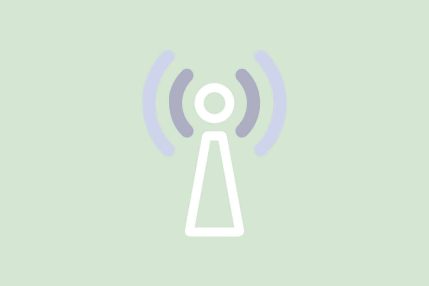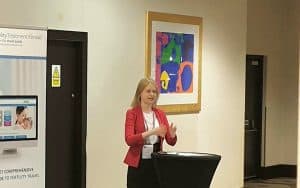29 October 2024
Louisa Ghevaert was interviewed on 8 BBC Radio Stations on 23 October 2024 discussing issues and legalities associated with prenatal DNA testing and other forms of DNA testing.1 This followed news reported by the BBC of a woman who received flawed DNA test results identifying the wrong man as her unborn baby’s father and causing a lengthy legal dispute over custody of her child. The woman was reportedly one of dozens of women who received unreliable DNA test results from a Canadian laboratory which advertised online.2
Sarah’s Story
The woman “Sarah” (a pseudonym) fell pregnant in 2019 and faced a predicament. “At that time I was seeing two men” she told the BBC. “I was engaged and I was having an affair, so I didn’t know who the father was”. Following an online search for prenatal paternity tests, she came across a Canadian company with a UK website and telephone number. It marketed a blood test costing £350.00 which it said would confirm the paternity of her unborn child. Sarah said “They advised that it was non-invasive and they’d be able to tell me as early as seven weeks pregnant and it was 99.9% accurate and it wouldn’t harm me or anyone else involved, or the baby, which was the most important part”. She went on to say “They sold me everything really, they told me everything I wanted. I was so worried and not in a good state mentally. They were my golden ticket to finding what I needed to know”. Sarah purchased this at-home test and she and her fiance provided a blood sample via a finger prick and sent off their samples. The results confirmed her fiance was her unborn baby’s biological father. Sarah said “I think there was a relief, because it was the answer that I wanted. But no matter the result, this was a child I was going to bring into this world.”
However, following the baby’s birth a second DNA test was requested by the man with whom Sarah had the affair using a UK based company, showing he was the baby’s biological father and not her fiance. Sarah told the BBC “It’s been life-changing, completely life-changing and it totally messes with the logistics of life, I guess, because there’s another person to consider.” Whilst she went on to marry her fiance, she was involved in a year long legal dispute over custody of her child. She said at one point her child’s biological father was seeking full custody and “The fact that I could’ve lost my child over it was big, very big.” The court eventually ruled that the child’s upbringing must be shared with the biological father. Sarah said this created a “difficult” situation because “We’re not on speaking terms, we don’t talk, so we have to be able to figure out how our lives work around all of that and I’m hoping through time, eventually, it becomes easier.”
DNA Testing and the Law
Louisa explained that non-invasive at-home prenatal paternity test can be less reliable and produce inaccurate results compared with an invasive medical prenatal test or a formal chain-of-custody DNA test after the birth by a legally accredited DNA test provider. At-home DNA tests can have less regulation and safeguards over testing methods and processing of test results and they can be provided by rogue companies operating in the market place. Louisa explained that at-home DNA testing also involves people taking their own samples and simply sending them off without independent verification of who took the test or how it was carried out. This can create difficulties and risks of inadequate samples which can undermine test results and produce less reliable results. It can also lead to serious legal and practical problems when people reply on these types of results and proceed with a pregnancy only to discover later on that the DNA test results were flawed and someone else is the child’s biological father.
Louisa explained that an alternative to an at-home prenatal DNA test is an invasive prenatal medical DNA test such as an amniocentesis, which can produce a more accurate result. It is usually carried out during the second trimester of the pregnancy between 15 – 20 weeks. A thin needle is inserted into the pregnant person’s abdomen and a sample of amniotic fluid surrounding the fetus is taken and compared with a DNA sample (e.g. a cheek swab) from the non-birth parent. However, Louisa explained that an amniocentesis is not risk free either and although rare, it can carry risk of miscarriage or premature labour. Louisa went on to explain that there is also the option of Chorionic Villus Sampling (CVS test). This is similar to an amniocentesis and it is typically undertaken between 10 – 13 weeks after the pregnant person’s last period. A thin needle removes a sample of chorionic cells from the placenta through the abdomen and compares these with a DNA sample/cheek saw from the non-birth parent. However, again this is not risk free and although rare, risks can include miscarriage and infection.
Louisa explained that an alternative is to wait until after the birth (recognising that this involves a longer wait and actual birth of the child) and then undertake a formal chain-of-custody DNA test through a legally accredited provider. Louisa explained that formal chain-of-custody DNA tests have more inbuilt safeguards than at-home tests and there is no risk to the pregnancy (unlike an invasive medical prenatal test) as the baby has been born. During a formal chain-of-custody DNA test, samples are taken by a independent registered medical professional (e.g.a GP) or an authorised and approved company sampler using a barcoded sampling kit. The individual providing the DNA sample is asked to provide recent passport sized photos of themselves which are endorsed by the sampler as a true likeness and the individual provides photographic ID as well.
Louisa discussed that the sampler then returns the sample directly to the regulated and legally approved laboratory in special packaging provided with the sampling kit, where a formal DNA test result is produced. This DNA test result is then used to confirm beyond doubt biological parentage. In doing so it provides a greater degree of certainty because it comes from a regulated and legally approved laboratory. Louisa explained that formal chain-of-custody DNA test results from a legally accredited laboratory can be used for a variety of legal purposes to include: resolve a paternity dispute, confirm financial responsibility and child support, inform a dispute about contact and upbringing of a child, support an inheritance claim, help correct or add a parent’s details to a birth certificate and help support an application for overseas citizenship/passport.
Louisa went on to explain more widely that at-home DNA tests are readily available online and upwards of 40-50 million people worldwide have undertaken an at-home test for a variety of different reasons. However, Louisa explained that people need to give careful consideration before taking an at-home DNA test as they can create complex legal and practical problems and issues which require careful navigation and expert legal management. People can start this journey because they have an interest in genealogy and are curious about their personal ancestry and heritage or they wish to construct family trees and trace birth parents and genetic relatives. However along the way, people can uncover unexpected issues and discoveries which can be shocking, stressful, difficult and upsetting and these can literally upend people’s lives. They can lead to discoveries that the person someone thought was their dad was not their biological father. They can uncover hidden adoption, unknown siblings, secret love affairs, fertility fraud, IVF mix-ups, donor conception and even prolific serial sperm donation. These discoveries can rock the foundations of people’s lives and sense of who they are. They can undermine trust in loved ones and family relationships. They can change established family history and create uncertainty and overwhelm people. They can also result in complex and unexpected legal proceedings.
Click here to learn more about the legal issues associated with DNA testing.
Click here to find out more about an application for a Declaration of Parentage in the English Family Court.
If you require assistance with the legalities around DNA testing or you need to resolve legal or biological parentage or rectify a birth certificate contact Louisa Ghevaert by email louisa@louisaghevaertassociates.co.uk or telephone +44 (0)20 7965 8399.
Images: Louisa Ghevaert CEO & Founder Louisa Ghevaert Associates
- Louisa was interviewed on 23 October 2024 by BBC Radio Cornwall, BBC Radio Lincolnshire, BBC Radio Hereford & Worcester, BBC Radio Guernsey, BBC Radio Norfolk, BBC Radio Shropshire, BBC Radio Cambridgeshire and BBC Radio West Midlands.
- To read the full BBC article ‘I could have lost my child’ after flawed DNA test by Emily Unia, 23 October 2024, click here.











